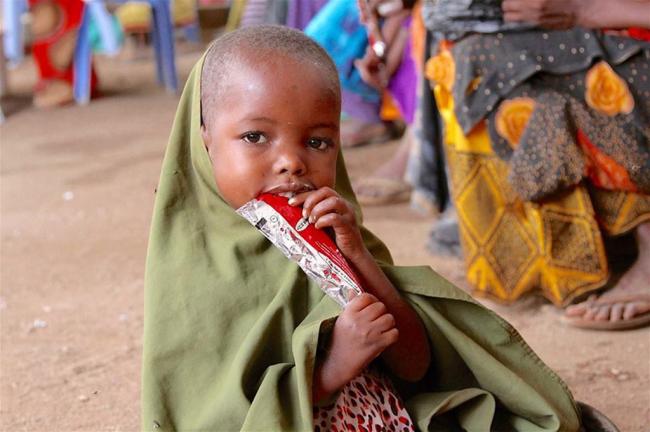
Somali leaders, international partners and UN determined to make Somalia famine resistant
New York, Jan 31 (JEN): One year after Somalia declared drought as a national emergency, famine has so far been averted due to collective and unprecedented humanitarian action, and on Tuesday, the country marked a turning point towards ending the cycle of recurring crises, with the launch of a Government-led, United Nations-supported humanitarian response plan.
At a high-level event in the capital Mogadishu, the 2018 Humanitarian Response Plan, seeking $1.5 billion to address the needs of 5.4 million people, was jointly presented with a Recovery and Resilience Framework (RRF), which outlines the way forward for recovery and longer-term resilience aimed at addressing the root causes of Somalia’s recurring humanitarian crises.
To address the impact of recurrent drought and famine risk, as a consequence of fragility, the Federal Government of Somalia led a Drought Impact Needs Assessment (DINA), in partnership with Federal Member States, the Banadir Regional Administration, the European Union, the UN and the World Bank.
The outcomes of the assessment have informed the RRF, which will enable the Federal Government and Federal Member states to devise medium- and long-term solutions to promote development and address the root causes of vulnerability to drought. The DINA and the RRF have been developed in alignment with the 2018 Response Plan and in coordination with humanitarian partners, in order to ensure complementarity and, most importantly, to protect humanitarian achievements.
The joint launch was attended by Prime Minister Hassan Ali Khaire and other senior representatives of the Somali Federal Government, as well as the international community, including the Administrator of the UN Development Programme (UNDP), Achim Steiner, UN Emergency Relief Coordinator Mark Lowcock, World Bank Senior Vice-President Mahmoud Mohieldin, and the European Union.
Opening the event, Prime Minister Hassan Ali Khaire emphasized his Government’s resolve in moving from crisis to recovery, saying: “Somalia is turning over a new leaf in its history. Important and significant progress is being made on our peace- and state-building agenda. We are determined to overcome the challenges posed by recurring droughts that risk undermining these gains, and we count on our international partners to support us in this endeavor.”
On his first visit to Somalia, Mr. Steiner recognized the Government’s leadership in averting famine in 2017 and highlighted the opportunity to build on this achievement while simultaneously implementing longer-term solutions.
“Today, Somalia has more effective institutions than it has had in decades. Progress in the state-building and peace-building processes in Somalia since 2012 has now created conditions in which targeted efforts can be made to define and implement solutions so that Somalia’s citizens will hopefully not have to face the risk of famine again,” he said.
Noting the magnitude of the humanitarian crisis, Mr. Lowcock urged the international community to sustain its life-saving support, while recognizing that that the situation cannot be solved by humanitarian interventions alone.
“Ending need in Somalia can only be achieved if we respond to immediate humanitarian needs while simultaneously implementing longer-term solutions to build resilience. Humanitarian and development partners are working with the Government to help ensure Somalis are less vulnerable to food insecurity and malnutrition, to natural hazards and displacement, and that they have better access to basic social services,” Mr. Lowcock said.
Referencing the new way of working, and emphasizing the significance of the HRP being jointly launched with the RRF, Mr. Mohieldin stated that “Somalia is ahead of the curve in its effort to overcome the challenges facing the country”. He noted that hard investment was required to implement the RRF and applauded the Government’s efforts to normalize its relations with the international finance system.
In its statement, the European Union expressed appreciation for the Government’s leadership and pledged its continued support.
“As a major partner to Somalia, who promotes a comprehensive approach linking security, political engagement, development and humanitarian aid, the European Union is pleased by the resolve shown by the government to lead us in a collective effort to move from reaction to prevention,” said Fulgencio Garrido Ruiz, Deputy Head of the European Union Delegation to Somalia.
Photo: UNICEF Somalia-Makundi
Support Our Journalism
We cannot do without you.. your contribution supports unbiased journalism
IBNS is not driven by any ism- not wokeism, not racism, not skewed secularism, not hyper right-wing or left liberal ideals, nor by any hardline religious beliefs or hyper nationalism. We want to serve you good old objective news, as they are. We do not judge or preach. We let people decide for themselves. We only try to present factual and well-sourced news.







